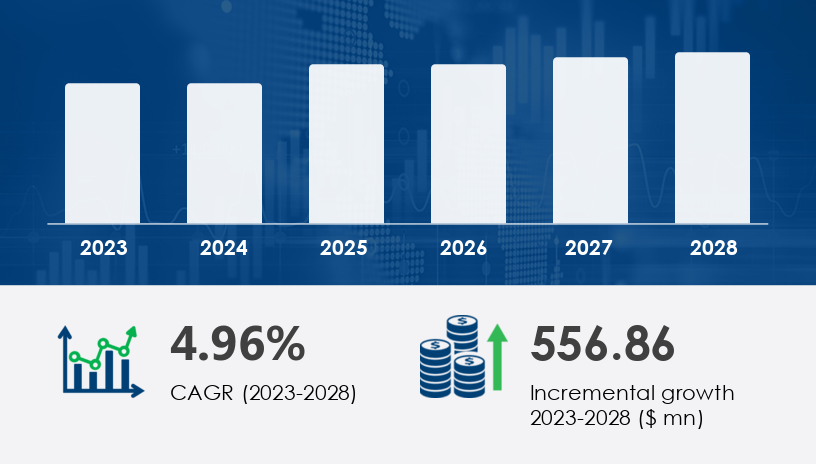The marine inboard engines market is set to grow by USD 556.86 million between 2023 and 2028, with a CAGR of 4.96%. The market is driven by rising interest in marina and recreational boating, advancements in turbocharger technology, and the increasing adoption of cleaner fuels. Regulatory pressures, particularly from MARPOL emission standards, are also shaping engine developments, leading to increased use of marine diesel oil, dual-fuel engines, and steam turbines.

For more details about the industry, get the PDF sample report for free
The US and Canada are the primary markets in North America, driven by increased demand for inboard engines in pontoon boats, ski boats, personal watercraft, powerboats, and aluminum fishing boats. States like Florida, Michigan, California, and Wisconsin have seen a rise in recreational boating activities, boosting demand for marine inboard engines. Additionally, the region’s shipping industry and e-commerce trade are further driving the market.
The marine inboard engines market is evolving with advancements in diesel inboard engines, gasoline inboard engines, and hybrid marine engines, catering to both recreational and commercial sectors. Boat propulsion systems are being enhanced to improve inboard engine efficiency and overall marine engine performance, leading to the development of low-emission marine engines that align with global sustainability initiatives. The demand for high-power inboard motors is increasing in recreational boating engines, particularly for yachts and powerboats, while commercial vessel engines require robust solutions to ensure long-term reliability. The integration of marine engine maintenance strategies is crucial for optimizing engine lifespan, with manufacturers investing in inboard engine technology that enhances fuel combustion efficiency and minimizes emissions.
Get more details by ordering the complete report
The shift towards fuel-efficient marine engines is shaping marine engine market trends, with a growing emphasis on stern drive systems and direct drive inboards that provide smoother propulsion and better handling. Innovations in noise reduction engines are improving the boating experience by minimizing vibrations and operational sound levels, particularly in the luxury segment. Additionally, marine engine durability remains a key focus, ensuring long-term performance in harsh maritime environments. With the rise of eco-friendly boating solutions, manufacturers are increasingly prioritizing cleaner fuel alternatives and hybrid propulsion technologies to comply with stringent environmental regulations while maintaining optimal efficiency and performance.
Safe and Secure SSL Encrypted